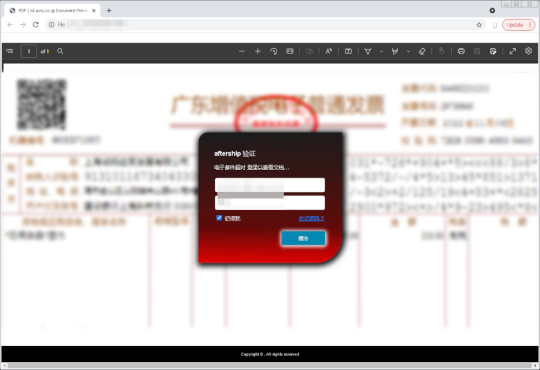Trojan.HTML.PHISH.QURAAOOIUB
Generic.Fake.Login.G.3007FA9F (BITDEFENDER)
Windows


Threat Type: Trojan
Destructiveness: No
Encrypted: No
In the wild: Yes
OVERVIEW
This Trojan arrives on a system as a file dropped by other malware or as a file downloaded unknowingly by users when visiting malicious sites.
It does not have any propagation routine.
It does not have any backdoor routine.
TECHNICAL DETAILS
Arrival Details
This Trojan arrives on a system as a file dropped by other malware or as a file downloaded unknowingly by users when visiting malicious sites.
Propagation
This Trojan does not have any propagation routine.
Backdoor Routine
This Trojan does not have any backdoor routine.
Rootkit Capabilities
This Trojan does not have rootkit capabilities.
Information Theft
This Trojan gathers the following account information:
- Specific Email
- Input Password
Stolen Information
This Trojan sends the gathered information via HTTP POST to the following URL:
- https://{BLOCKED}l.com/Director/lognet1%20(1)%20(4).php
Other Details
This Trojan does the following:
- It disguises itself as a login page to access a document.

- It connects to the following URLs for images displayed inside the webpage:
- https://i.{BLOCKED}o.com/97fa22398eecc10061faa658e528684a.png
- https://i.{BLOCKED}o.com/429548e6cd1f7f512c1dcbd0003caaeb.png
It does not exploit any vulnerability.
SOLUTION
Step 1
Before doing any scans, Windows 7, Windows 8, Windows 8.1, and Windows 10 users must disable System Restore to allow full scanning of their computers.
Step 2
Scan your computer with your Trend Micro product to delete files detected as Trojan.HTML.PHISH.QURAAOOIUB. If the detected files have already been cleaned, deleted, or quarantined by your Trend Micro product, no further step is required. You may opt to simply delete the quarantined files. Please check the following Trend Micro Support pages for more information:
Did this description help? Tell us how we did.


